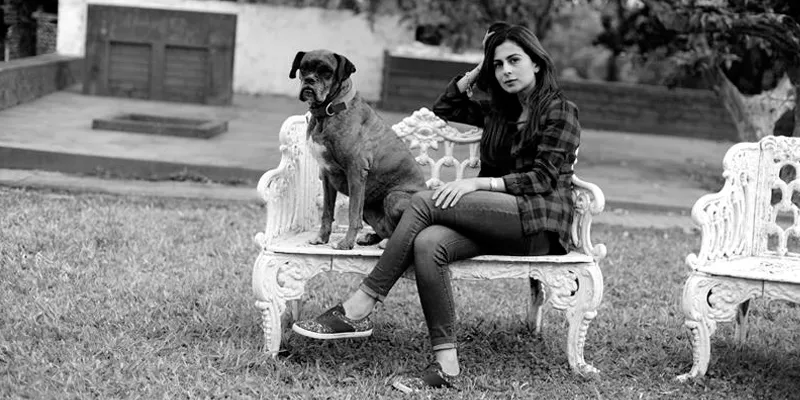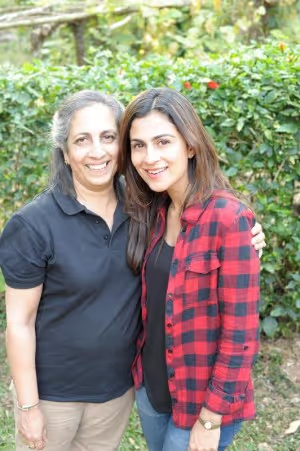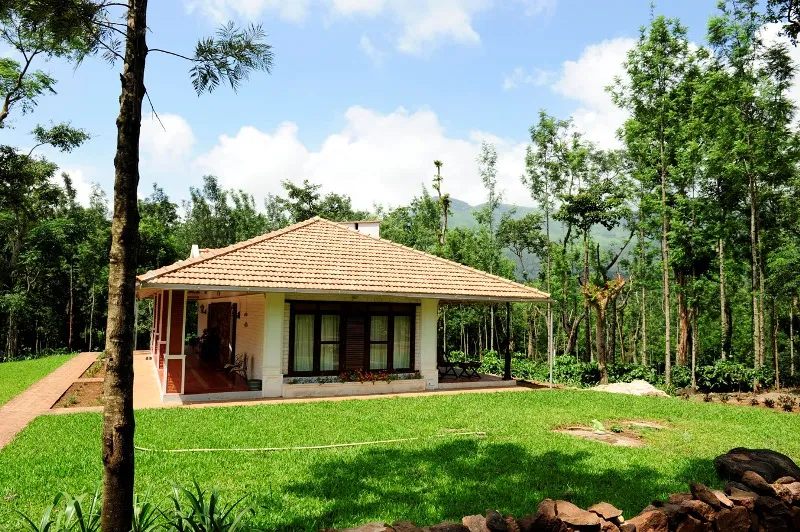Tejini Kariappa's USP: 'We are small, and we'll continue to be small.'
“I started with theatre. I was part of six major theatre productions. Then, I lost my father and I moved back to India to be closer to my mum,” says Tejini Kariappa as she traces her journey to become the 27-year old founder of Estrada, a sports and lifestyle PR agency.
Tejini Kariappa is a double graduate of banking and finance from Monash University, Melbourne. Raised in Bangalore, she studied at Sophia High School before moving Australia.
Back from the land down under and working with a friend, Tejini was told she had “a good mix of creative and finance.” Moving on to another job, Tejini began to realise that over the years she’d created an impressive network of contacts. It was then she thought to herself: “What am I doing? I need to start this on my own and see where it goes!” Unsatisfied with what she was getting from her job, in 2013, she decided to move on.

“My first client was Masaba, a fashion designer. She said she was looking for someone to handle my marketing. It sounded like a good idea, and I started off with her. She was my baby in terms of the brand, and that’s how Estrada was startedfrom the scratch.” Estrada was created in December 2013.
In only a span of one year, Estrada roped in sports personalities like Irfan Pathan and Yusuf Pathan. They’ve worked closely with actors John Abraham and Soha Ali Khan; designers like Masaba Gupta and Archana Kochhar; lifestyle brands like Myntra; and fashion events like the Lakmé Fashion Week, Abil Pune Fashion Week and Wills Lifestyle India Fashion Week.
Estrada largely manages sports, fashion and lifestyle brands that it carefully curates. In a world where scaling is the preferred eventuality, bigger is better, corporations want to become monopolies and monopolies want to become governments, Tejini likes to go against the flow. “I’ve always believed in less is more,” she says, “from the way I dress, to the way I live, to the way I handle people and to the agency. If you have two clients, you go the whole mile with those two clients. Our USP’s always been that: We are small, and we’ll continue to be small.
“Here and there I do commission projects for someone who really needs help. But holistically, it’s just passion for sports, lifestyle and fashion.”

Outside of Estrada, though, Tejini, with her family, also runs a small business nestled in the hills of Chikkamagaluru. In the dense green and rare kurinji blooms of Baba Budangiri, a mountain in the Western Ghats, sits Halli Berri, a coffee estate and homestay. “Not too many people know Halli Berri is mine, and I like it that way,” says Tejini. Halli Berri started as a revenue stream for Tejini’s mother and sisters. Two-to-three years ago, the coffee plantation had gone through a drought. Around this time, Tejini lost her father, leaving her mother alone with a coffee estate that had been part of the family since the 1900s. Young, with unflinching pertinacity and passion, she wanted to start something that was fun, engaging and socially conscious. Tejini helped create Halli Berri, her mother’s brainchild. “We started selling our estate coffee at the coffee shops, and customers would ask us for little packs of it, because they liked it a lot. That’s when we thought maybe we’re on to something. Why not retail it?”
What started out as a mom-and-pop shop reached the next level: Tejini wanted Halli Berri to not only be a luxury coffee brand, but a single-origin coffee brand for responsible luxury customers. “It somehow managed to create a niche for itself,” she says.
Halli Berri is one of the only brands with a Rainforest Alliance certification. A green frog sits on its packages, and very few brands are accredited with it even internationally. But Tejini and her family’s determination to create a socially conscious business didn’t end with certifications and accreditations. In a male-dominated sector, there’s is an all-women team. Even today, they face gendered competition and challenges in a highly competitive and drama-infused industry. However, she says, “I’ve been so driven and passionate, because if we don’t challenge ourselves, what do we live for? It’s one of those things for me, in particular. Everybody can make money; the point is the to make a difference. That’s why Halli Berri is also part of a larger CSR initiative.”
Tejini ensures that all the workers at her estate receive proper hygiene, nutrition and education. It’s not enough to give the underprivileged a job, but it’s imperative to alleviate them on all social levels. For the children of Halli Berri workers, Tejini’s family provides free education until 13 years of age, and helps them enroll in schools after, too. “We’re still a young brand with big dreams,” she says, “and we just want to truly uplift the community.”
Life as a plantation owner also comes with its own natural set of challenges. Tejini says, “It’s extremely unpredictable. We’re dependent on the monsoon for most of our crop efficiency. If the weather goes bad, the entire crop is gone. In Chikkamagaluru, we produce 100 per cent Arabica, which requires three times the mount of attention. They’re more delicate than the Robusta plant.”

It’s a delicate balance Tejini needs to maintain. Crop loans are necessary to offset the insurmountable cost of plantations. You’re essentially pruning and caring for a complete biosphere. For the average person, it’s not an easy amount or task to overcome. To counter the unpredictability of coffee, the family started the Halli Berri cottages as an alternative source of revenue. This way, they don’t necessarily need to ensure there’s a good crop every year. The Kariappa women being avid architecture enthusiasts, and like all old-school Bangaloreans, infused with a natural affinity for colonial Victorian design, made sure the cottages were a blend of contemporary and colonial. “We started with two cottages as that’s the budget we had. Less is more, but the demand has gone up,” laughs Tejini. Eventually, she’d like to see two more cottages crop up on the land, but nothing large-scale. “There’s no charm of living a planter’s life if everything is commercialised. The plantations have been in the family for years, but our parents and grandparents ensured the children received education. Still, we’ve grown up with a working knowledge of coffee plantations without having to consciously know it.” As children the girls played in the Chikkamaguluru mountain soil, dirtying their hands in manure, familiarising themselves with the conditions under which the right amount of coffea blooms to create a white, fragrant shroud over the shrubs. “The processes are very hard work and cannot afford neglect,” says Tejini. “You can’t put the crop and expect them to grow.” In the jungles, coffee has many enemies: creepers, trees whose roots spread strong and wide into the ground, too much sunlight or too little due to dangerously dense canopy. Coffee itself can be an oddly suicidal plant when it blooms excessively to create more berries than the plant can handle, ruining an entire harvest. “We need to actively grow on the plantation.”
Running two different businesses, Tejini has big and small challenges, a natural part of her job. She laughs and says, “You know, I’m extremely petite. A lot of the times, if I don’t dress a certain way, I will look like a college kid. People ask me, ‘Are you sure you run this?’ and I say, ‘I know what I’m talking about!’ So being a small woman is a challenge, though not in fashion. A lot more is accepted in fashion, but in sport, not at all! There are very few women who are publicists or player representatives. So I face a lot more hurdles from a gender and age perspective. But once you over come the high from reaching there, it’s quite cool, indeed.”







